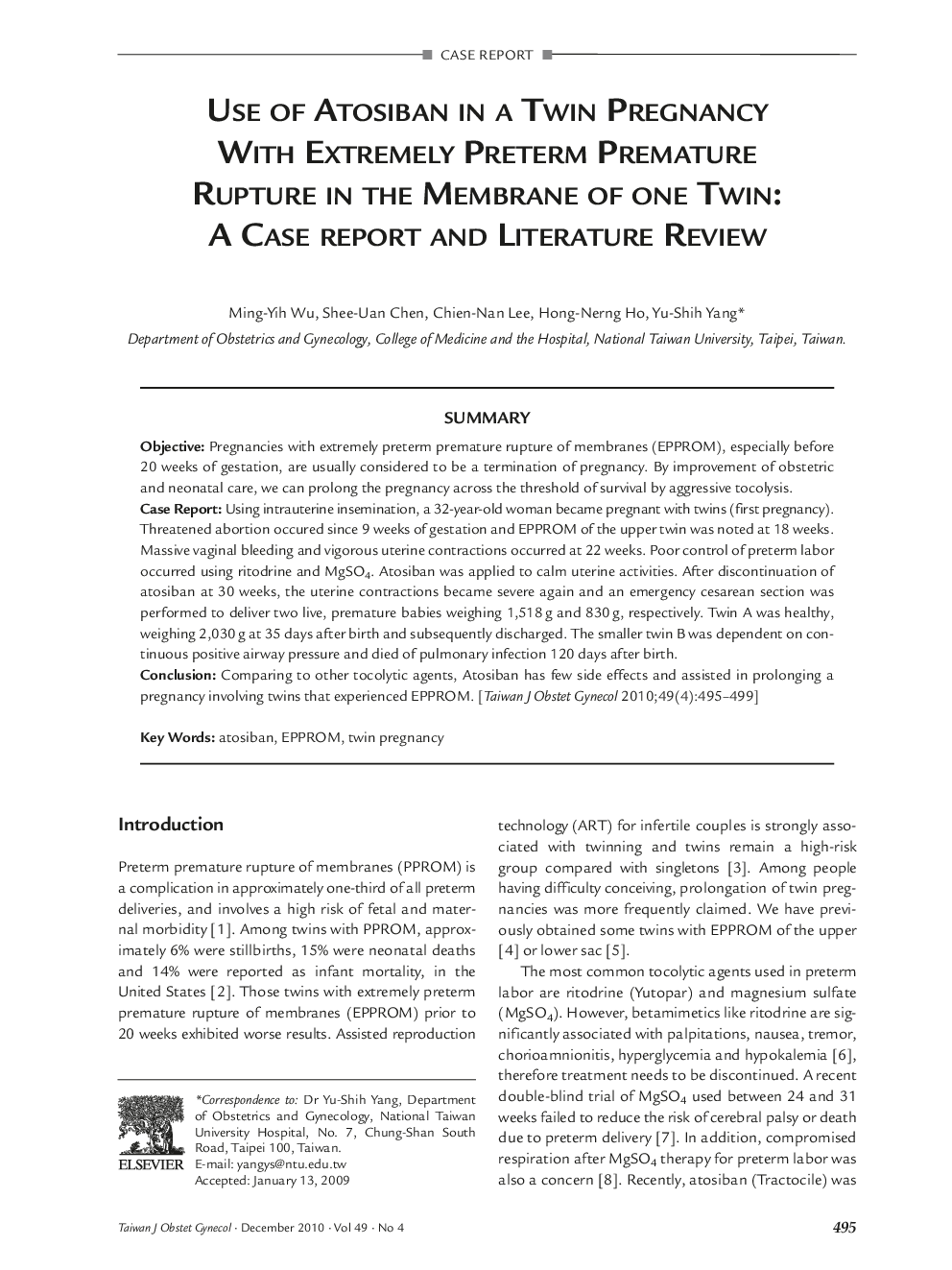| Article ID | Journal | Published Year | Pages | File Type |
|---|---|---|---|---|
| 3975882 | Taiwanese Journal of Obstetrics and Gynecology | 2010 | 5 Pages |
SummaryObjectivePregnancies with extremely preterm premature rupture of membranes (EPPROM), especially before 20 weeks of gestation, are usually considered to be a termination of pregnancy. By improvement of obstetric and neonatal care, we can prolong the pregnancy across the threshold of survival by aggressive tocolysis.Case ReportUsing intrauterine insemination, a 32-year-old woman became pregnant with twins (first pregnancy). Threatened abortion occured since 9 weeks of gestation and EPPROM of the upper twin was noted at 18 weeks. Massive vaginal bleeding and vigorous uterine contractions occurred at 22 weeks. Poor control of preterm labor occurred using ritodrine and MgSO4. Atosiban was applied to calm uterine activities. After discontinuation of atosiban at 30 weeks, the uterine contractions became severe again and an emergency cesarean section was performed to deliver two live, premature babies weighing 1,518 g and 830 g, respectively. Twin A was healthy, weighing 2,030 g at 35 days after birth and subsequently discharged. The smaller twin B was dependent on continuous positive airway pressure and died of pulmonary infection 120 days after birth.ConclusionComparing to other tocolytic agents, Atosiban has few side effects and assisted in prolonging a pregnancy involving twins that experienced EPPROM.
